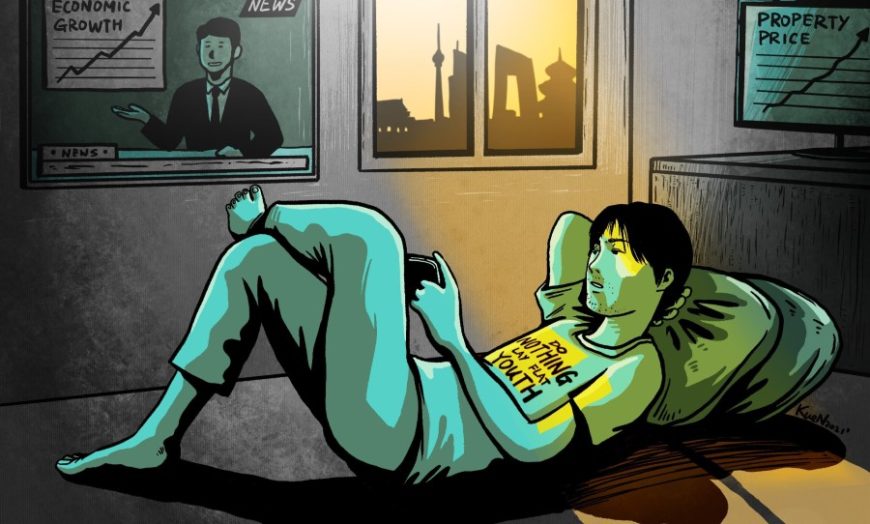Chinese culture generally discourages standing out from the crowd and attracting attention. If you can “pass the days” (过日子) with your head down, swallow the pain, and survive, you have a better fate than a martyr. Although China’s long history has suffered rebellions, modern-day China sees few protests considering the grievances the authorities place upon the people. Of course, this may have a thing or two to do with the Chinese Communist Party’s history of violently shutting down protests.


If you read The Art of War, you get the idea that a high-ranking commander cannot rely on lower-ranking officers to report bad news. Sun Tzu advises, “When the soldiers stand leaning on their spears, they are faint from want of food.” It is the commander’s job to carefully observe the state of the army by looking at the unspoken details; he cannot expect to hear such information from lower parts of the chain of command. Much of The Art of War concerns itself with looking beyond verbal communication to discern truth in small, unmistakable details.
During Japan’s occupation of China in World War II, many Chinese resisted the Japanese by a certain act called “mo yang gong” (磨洋工). This Chinese idiom refers to a type of passive sabotage in which a worker would express his discontent by working ineffectively. Chinese workers under Japanese taskmasters would waste away their time at work, frustrating Japanese production goals. (Decades later, having learned their lesson, the Japanese developed Kanban.)
Today, another movement disliked by the authorities has begun. It is named “tang ping” (躺平), meaning “lying flat.” “Lying flat” refers to living life as a passive consumer. In China, members of the younger generation seek to shirk their parents’ workaholism, instead enjoying the simple, bare necessities of life. These grownup single children are finding the job market to be too difficult, dulling their ambitions, and looking to pass their days humbly. Most of the time, this is no protest movement.
However, it does come at odds with the Chinese Communist Party’s plan for the national economy, and participants of tang ping are aware of this. The Party has suppressed the spread of tang ping on China’s internet and made statements against it on TV.
China recently tightened restrictions on video and computer gaming to three hours a week, a big hit for a young population in love with the escapism provided by games. In another move, the government has added stifling restrictions to private education. To be clear, these restrictions primarily affect adolescents, most of whom lie a generation below that of the tang ping movement.
I am curious to see what the government’s actions will produce. Will it bring greater productivity, or will VPNs and resentment only increase? Will people turn to watching video game streams? At least one big player on the commercial side has already responded. Tencent, China’s massive software conglomerate best known for WeChat and QQ, has bought up much of the gaming industry (think League of Legends, Fornite, Call of Duty, and a host of other big names), and the company will continue to invest in international gaming, giving up on much of the domestic Chinese gaming scene.
At the end of Wolf Warrior 2, the Chinese Communist Party plugs its takeaway in gold characters written on a red Chinese passport: “Citizens of the People’s Republic of China: when you encounter danger overseas, do not give up! Please remember, behind you stands a powerful homeland!” The message encourages a sort of imperialistic bravado for Chinese citizens abroad, but it also implicitly beckons for return to the homeland, where all is as it should be.

In recent years, this messaging has proven fruitful. Western observers have voiced a worry that Chinese students in American universities are increasingly choosing to return to China, supplying China with a host of Western-educated professionals and diminishing the West’s competitive edge in academic research. One wonders, however, if the increased paranoia and distrust the Chinese Communist Party displays towards its own citizens will result in a reversal of this trend.


Leave a Reply